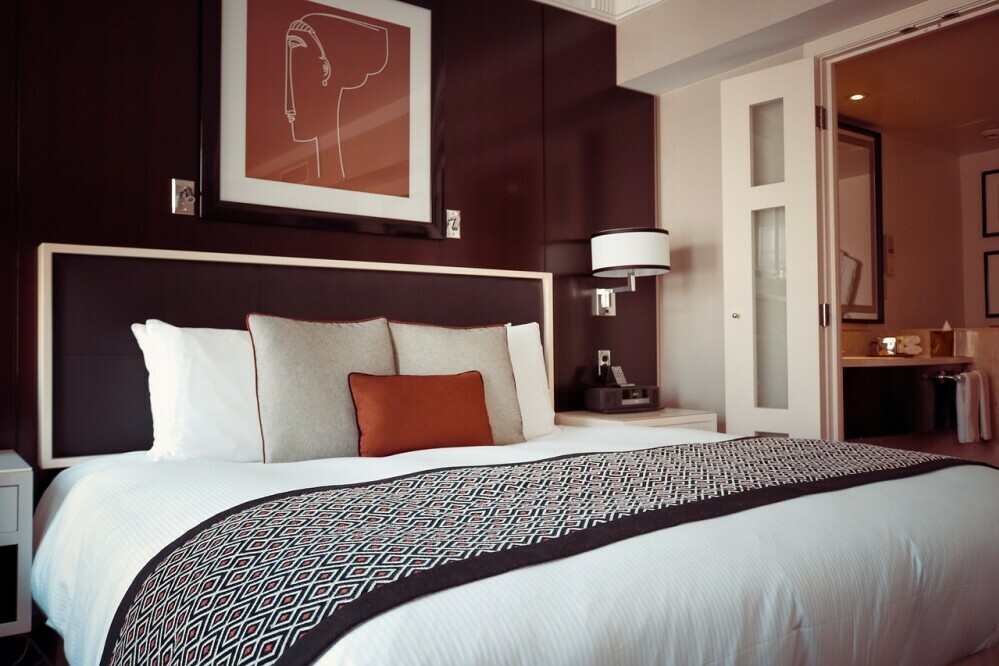Table of Contents
Introduction
I’m here to help you with understanding sleep disorders, and trust me, this isn’t just about tossing and turning. It’s about your overall well-being. A sleep disorder is a condition that frequently impacts your ability to get enough quality sleep. While occasional sleep disturbances are common, persistent issues can be part of a sleep disorder. We will shed light on commonly used Home remedies for sleep disorder to improve sleep in this article.
You’re going to find out about common types like insomnia, which keeps you awake when you desperately want to sleep, and sleep apnea, where breathing repeatedly stops and starts throughout the night. Then there’s restless leg syndrome, giving an overwhelming urge to move your legs while trying to rest.
Sleep is crucial. It’s the body’s way of recharging. Without it, everything from your mood to your physical health can be affected. Poor sleep can be linked to weight gain, high blood pressure, and a decrease in immune function.
So when do you worry? If you’re occasionally experiencing sleep troubles, it might not be alarming. However, if disturbances are a regular occurrence and interfere with your daily life, it’s time to seek advice. Understanding when to ask for help is as crucial as finding a remedy.
Assessing Your Sleep Environment: A First Step to Better Rest

Your bedroom should be a sanctuary that promotes sleep, but for many, it’s far from that. Establishing a sleep-friendly environment can make a significant difference in combating sleep disorders. Let’s explore how to optimize your space for the best rest possible.
If you’re looking to turn your bedroom into a sleep-inducing haven, start with controlling the light. Light exposure suppresses the secretion of melatonin, your body’s sleep hormone. Use blackout curtains or a sleep mask to block out light, and if you’re a tech-lover, remember to limit screens before bedtime, as the blue light emitted can disrupt sleep.
Now, consider the ambiance of your room. The ideal sleeping environment is quiet and cool, with an average temperature suggested between 60 and 67 degrees Fahrenheit (15-19 degrees Celsius). Try to eliminate noise pollution or employ a white noise machine or earplugs to mask unwanted sounds.
Your mattress and bedding also play pivotal roles in sleep quality. Choose something that resonates with you, whether it be a firm mattress, a body pillow, or breathable linens. Your choices should support your body and ease discomfort through the night.
Finally, examine your room for distractions that may subconsciously affect your sleep. The presence of work materials, exercise equipment, or even clutter can create a mental association that keeps your brain active, going against the grain of relaxation.
By curating an environment tailored to your sleep needs, you’re laying the groundwork for a better night’s rest. This isn’t just about making changes for comfort—it’s also about understanding and minimizing the environmental triggers of sleep disturbances.
With your sleep environment set up for success, it’s natural to wonder what other factors can influence your slumber. That’s going to include what you eat and drink. In the next section, we’ll delve into the relationship between diet and sleep, revealing foods that might help you drift off faster, and those you should probably avoid.
Diet and Sleep: Foods That Help or Hinder Your Rest

I’m going to let you in on a secret: What you eat affects how you sleep. Trust me, your late-night snack choices might be the culprit behind your tossing and turning.
When you’re reaching for something to munch on before bed, steer clear of caffeine, spicy food, and heavy meals. These can rev up your digestion and heart rate, making quality Zs harder to catch.
Now, here’s the good news. There are foods out there that could help usher you into dreamland. Think bananas packed with magnesium and potassium, or almonds that boast a healthy dose of sleep-promoting melatonin.
Timing is everything. A light snack about an hour before bed can be beneficial, but chowing down on a big meal too close to bedtime? Not so much. It can lead to discomfort and indigestion, keeping you awake.
Choose something that resonates with you from the ‘good list’ of sleep-friendly foods. A warm glass of milk? It’s not just a tale from your grandparents; it’s got tryptophan, an amino acid that the body uses to make serotonin, which in turn is used to make melatonin.
Establishing a Soothing Pre-Sleep Routine
I’m going to let you in on a secret: having a consistent pre-sleep routine can be a game-changer for those struggling with sleep disorders. This isn’t just about doing the same thing every night; it’s also about training your body to recognize when it’s time to power down.
Relaxation techniques play a key role here. You might try deep breathing exercises, which have been shown to lower stress levels and prepare your body for sleep. Progressive muscle relaxation, starting at your toes and working your way up, can also be effective.
Incorporating mindfulness and meditation might seem daunting at first, but these practices can profoundly impact sleep quality. Even brief guided sessions can set the stage for a peaceful night’s sleep.
Choose something that resonates with you, like reading a physical book under soft lighting, or performing some gentle yoga stretches. These activities can significantly ease the transition to sleep, making it smoother and quicker.
Now, as you establish this calming pre-sleep pattern, you’re also setting the stage for the influence of physical activity on sleep quality, which I’ll discuss next. Engaging in regular, appropriate exercise during the day can enhance the effectiveness of your night-time routine. It’s all about creating a balanced approach to promote better sleep.
The Influence of Physical Activity on Sleep Quality

It’s important to discuss the strong link between regular physical activity and improved sleep quality. When you’re physically active, your body undergoes certain physiological changes that can promote better sleep. Let’s explore how incorporating the right amount of exercise into your day can lead to more restful nights.
When it comes to exercise, it’s all about balance. Exercising too close to bedtime might leave you too energised to fall asleep. However, engaging in moderate-intensity activities during the day can help you fall asleep faster and deepen your sleep. I’m talking about activities like brisk walking, cycling, or even gardening – these can make a big difference.
You may think that only vigorous exercises influence sleep, but that’s not the case. Even light physical activities, such as yoga or taking a leisurely walk, can help regulate your sleep patterns. The key is consistency; make physical activity a regular part of your routine to see the best results.
While exercise is generally good for sleep, timing is crucial. I would suggest avoiding high-intensity workouts right before bed. Aim to finish any vigorous exercise at least three hours before you plan to hit the sack. This allows your body to wind down and prepare for rest.
Keep in mind that sitting for extended periods – which many of us do due to desk jobs – can negatively affect sleep quality. Just don’t panic if you’re stuck at a desk all day; there are ways to incorporate more movement into your routine, like standing desks, stretch breaks, or walking meetings.
In some cases, despite regular physical activity, sleep disorders might persist. This is when you need to consider the possibility that a deeper issue might be at play. In the next section, we’ll look at when and how to seek professional help if home remedies and lifestyle changes don’t seem to be resolving your sleep disorder.
When Home Remedies Aren’t Enough: Seeking Professional Help
I’m going to level with you. Sometimes, despite your best efforts with home remedies, sleep disorders stubbornly persist. That can be frustrating, to say the least. But don’t worry too much about it. You’re not out of options. This is where professional help can make a world of difference.
If you’ve been struggling for a while and nothing seems to help, it might be time to see a sleep specialist. Are you dealing with choking or gasping for air at night? Or maybe your legs just won’t stay still? These signs suggest it’s not just about implementing changes at home—you’ll want an expert’s perspective.
Professional help is not about giving up on home remedies; it’s about complementing them. A sleep study, for instance, could uncover what’s happening beneath the surface. These insights allow for a tailored approach that could include a combination of medical interventions and lifestyle changes.
Interpreting the symptoms and choosing the right course of action should ideally be done under the guidance of a healthcare provider. They can help you navigate the wide array of treatment options, from cognitive behavioral therapy for insomnia (CBT-I) to sleep apnea devices or even prescription sleep aids.
Your first attempt doesn’t need to be your last. Embrace the journey to better sleep as a process. Stay open to adjustments and listen to what the professionals have to say. They’ve got the expertise to set you on the path to dreamland with both eyes wide shut—metaphorically speaking, that is.
I really hope that you find the sleep solutions that resonate with you. Keep experimenting with home remedies but remain vigilant about the signals your body sends. A combination of professional advice and home strategies often yields the best results. Sweet dreams shouldn’t be just a wish—they can be your reality.
If you would like to read more about the effective relaxation techniques to achieve better sleep then please click here.
Kay,
greenlifehub.com
